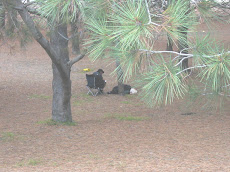OK. It's what I deserve for having well-educated friends and one who is a professor of English and a fine poet, too.
If you did not catch the glaring reference to (or theft from, as someone might say) Richard Wilbur, then I will fill you in right now. Richard Wilbur, the 1987-88 Poet Laureate of the United States, wrote one of my favorite poems that describes a unique contemplation on the human condition in the form of that everyday routine of getting up in the morning.
In my last blog entry, the paragraph in question is the penultimate, in which I describe my "astounded" soul's reentry into the "waking body." Yes, words I lifted, on purpose, from Richard Wilbur. The comparison between my own experience and Wilbur's elegant, beautiful poem was all too clear to me and, hence, seductive. And we all know that "bitter love."
For the benefit of my readers, I include the poem here. But, stay alert --- I know someone will --- to other barely-concealed, or should I say, bald borrowings:
Love Calls Us to the Things of This World
The eyes open to a cry of pulleys,
and spirited from sleep, the astounded soul
hangs for a moment bodiless and simple
as false dawn.
Outside the open window
The morning air is all awash with angels.
Some are in bed-sheets, some are in blouses,
some are in smocks: but truly there they are.
Now they are rising together in calm swells
of halcyon feeling, filling whatever they wear
with the deep joy of their impersonal breathing;
Now they are flying in place, conveying
the terrible speed of their omnipresence, moving
and staying like white water; and now of a sudden
they swoon down in so rapt a quiet
that nobody seems to be there.
The soul shrinks
from all that it is about to remember,
from the punctual rape of every blessed day,
and cries,
"Oh, let there be nothing on earth but laundry,
nothing but rosy hands in the rising steam
and clear dances done in the sight of heaven."
Yet, as the sun acknowledges
with a warm look the world's hunks and colors,
the soul descends once more in bitter love
to accept the waking body, saying now
in a changed voice as the man yawns and rises,
"Bring them down from their ruddy gallows;
let there be clean linen for the backs of thieves;
let lovers go fresh and sweet to be undone,
and the heaviest nuns walk in a pure floating
of dark habits,
keeping their difficult balance."
How to Install a Whole Home Dehumidifier: Step-by-Step Guide
-
Sticky humidity clinging to your skin even with the AC running? A
whole-home dehumidifier solves this by maintaining ideal 30-50% […]





























No comments:
Post a Comment